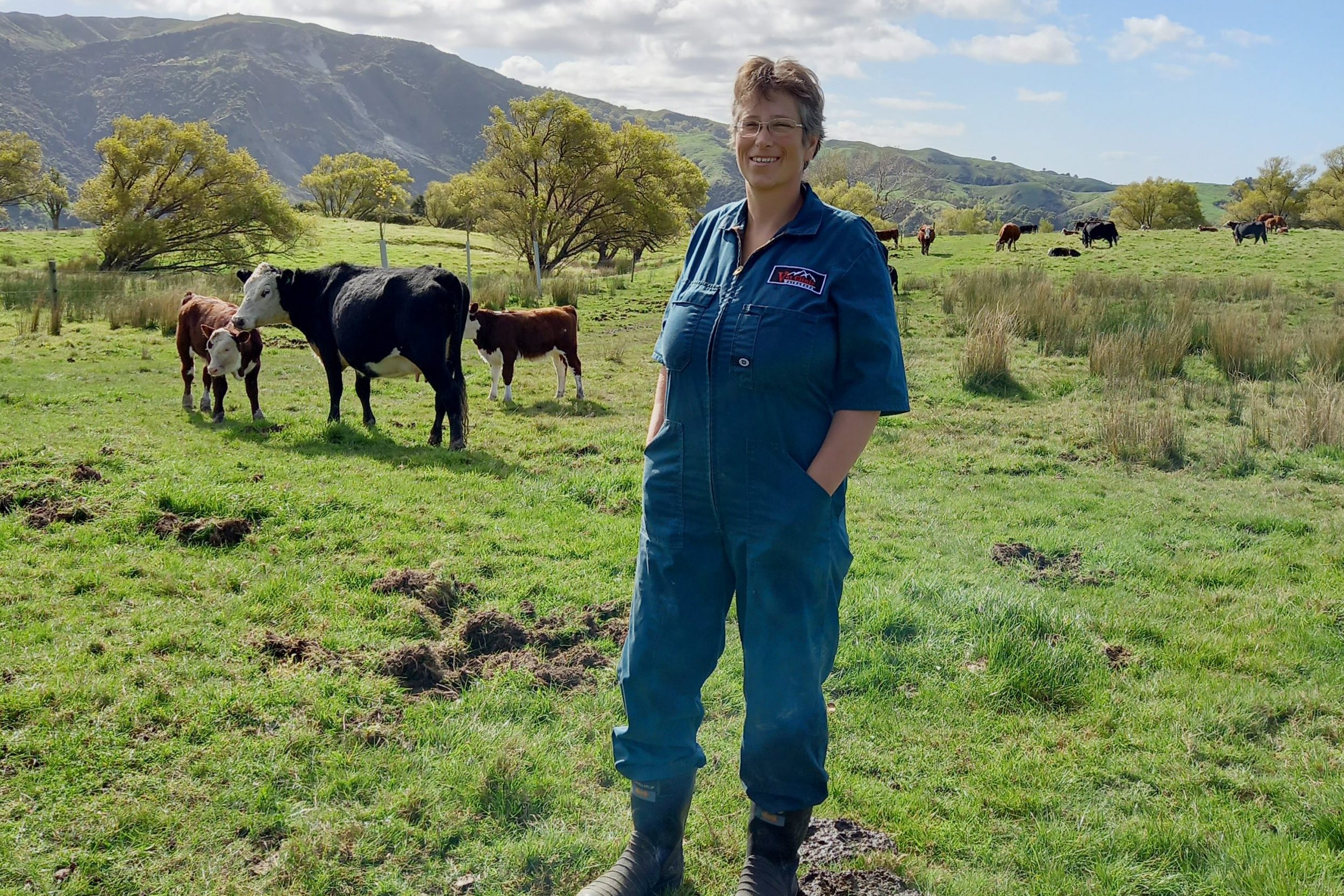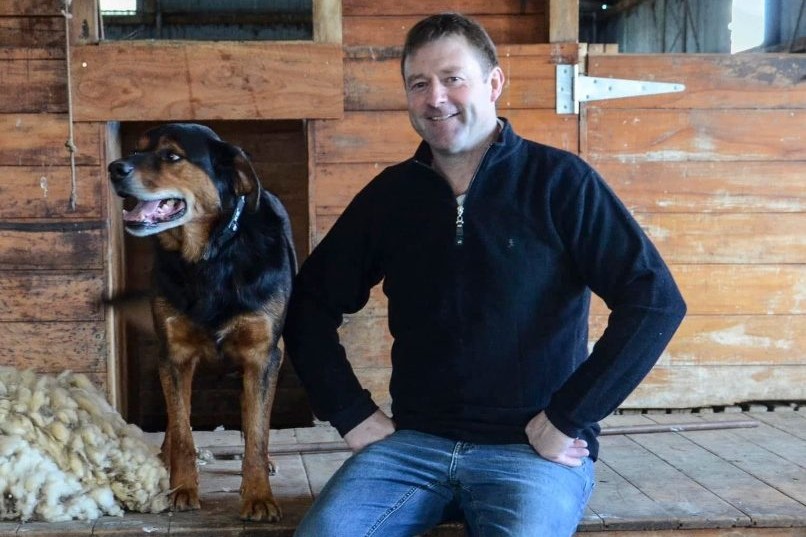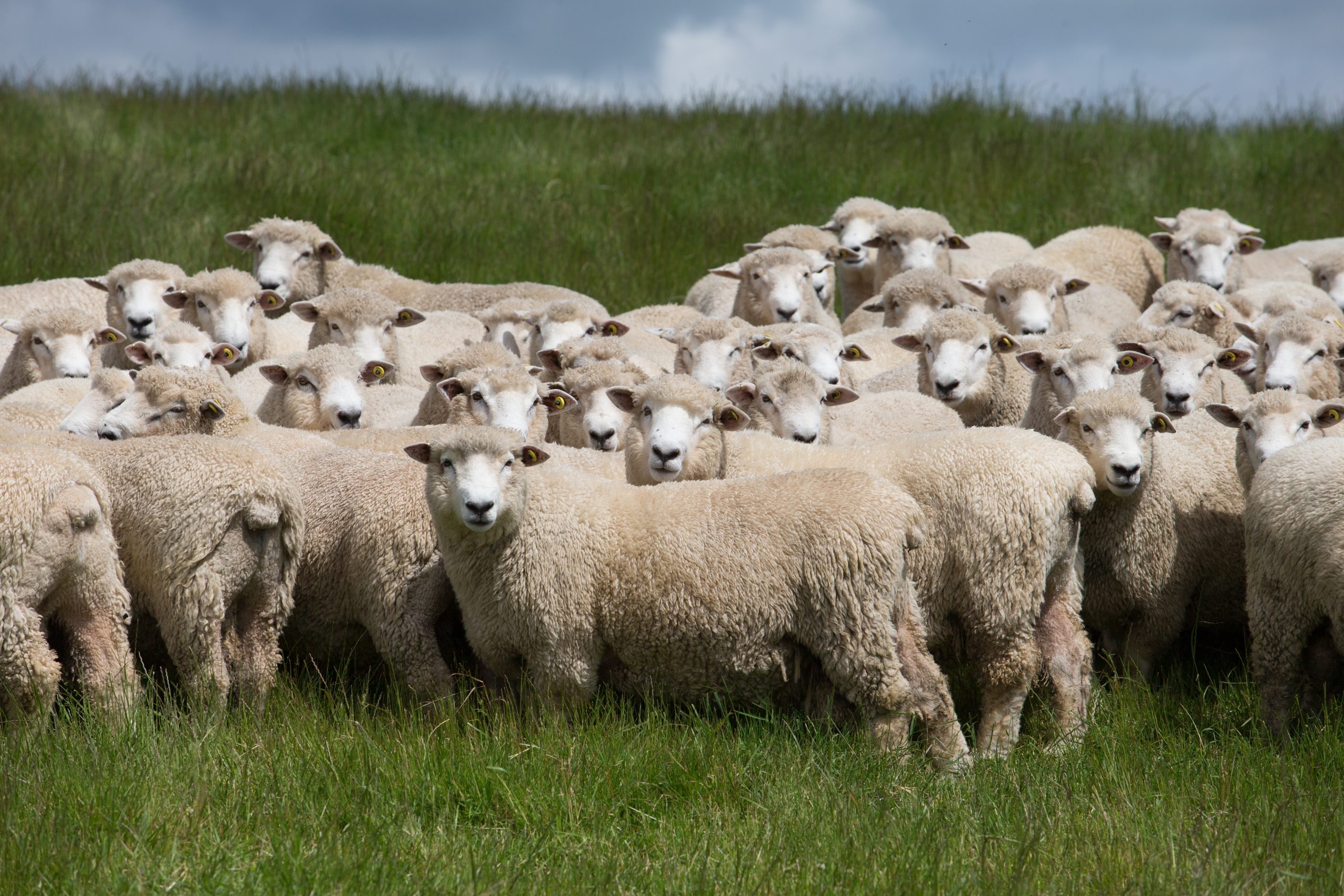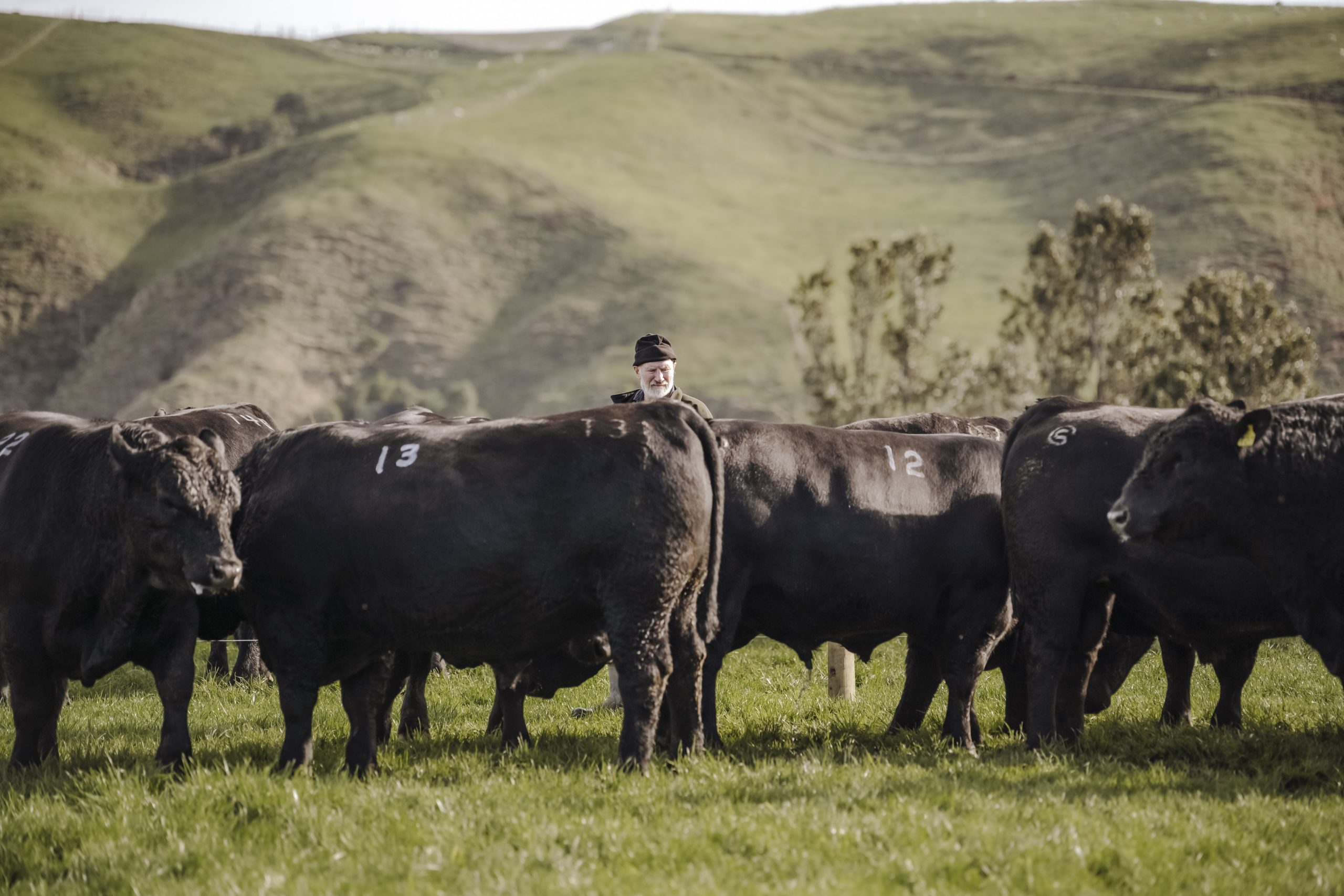Lynda Gray
Giving Wagyu high-priority feed treatment is paying off for South Canterbury farmers Evan and Clare Chapman.
Although still working out the actual returns the Chapmans are very satisfied with the First Light relationship and onfarm management leading to dispatch of their first finished line of Wagyu-cross steers. From October until March this year 97 dairy cross-Wagyu were offloaded. They cost about $18 a week to graze and killed out at an average marble score of 4.6.
“I was pleased that we were above the average marble, which is about 3.5. We had some at nine (the highest score) and some in the two range although they all looked the same and at prime weight when we sent them off,” Evan says.
This is the third season they’ve bought about 100 steers for finishing over two winters. Although experienced beef finishers they’re still learning about the feeding of Wagyu.
“We treat them as high priority. We were told they need to be fed well every day, and that missing a day can mean missing a marble score.”
He says First Light hub days with other suppliers had been useful for sharing information and learning particular skills such as body condition scoring.
On their 540-hectare rolling downlands farm at Kakahu, near Geraldine, the Wagyu are rotated around irrigated pastures and get fodder beet in winter. This year the 107 R1s are getting beet and balage, and the R2s beet and hay.
“We put the hay in ring feeders and fence them off from the cattle at night so they have to go and graze the fodder beet.”
Last year’s R2 Wagyu achieved a daily growth average of 900 grams.
“We’ve found that they’re quite leggy and framey for the first winter and it’s not until their second spring that they really fire.”
The Chapmans became First Light Wagyu suppliers in 2016 after approaching the Hawke’s Bay-based beef and venison marketer because of the knowns around buying and selling prices.
“We’d had breeding cows for a long time, but it was too hard to take them through the dry summers with calves at foot, so we went to trading steers and heifers, but we were at the mercy of the schedule and the store price…”
Evan admits they initially flinched at the purchase price, which he prefers not to disclose, but says the price at the other end for the 24 to 26-month-old stock has been worth it.
As well as Wagyu the Chapmans run 2800 composite breeding ewes and take on bull beef cattle at 100kg and 18-months for finishing. However, they’re keen to increase the number of Wagyu and reduce the bull beef.




